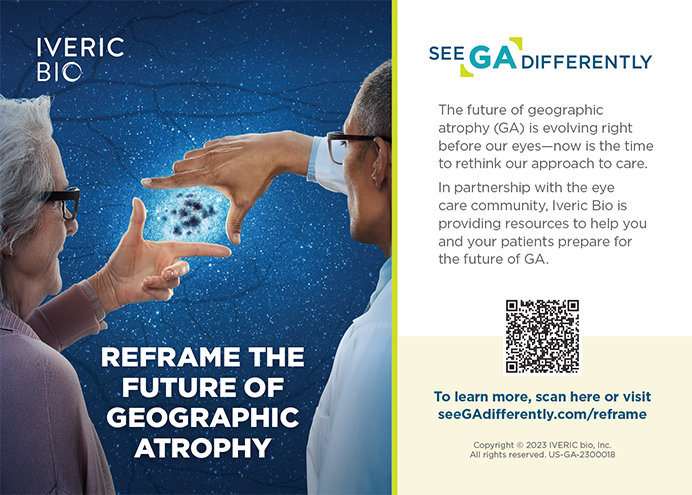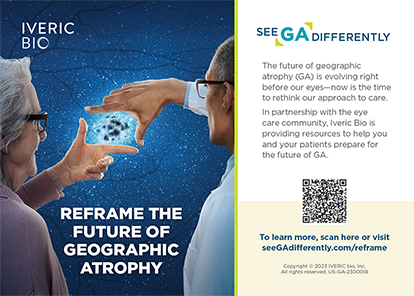For each installment of "Today's Topics", section editor John F. Doane, MD, will identify a hot-button topic in cataract and refractive surgery and ask several experts to share their thoughts.
Do you think there is a valid connection between LASIK and depression? If so, what should be done pre- or postoperatively to address this?
Steven J. Dell, MD
Mood disorders (including major depressive disorder, dysthymic disorder, and bipolar disorder) affect approximately 9.5 of the US population (aged 18 years and older) in any given year.1 Many of our patients suffer from these disorders, and others may be affected but not yet diagnosed. Any source of stress in a susceptible individual can exacerbate these preexisting pathologies. In my opinion, LASIK is not unique in this regard. There will always be individuals who fixate on the outcome of their surgery, dermatological conditions, or any other conceivable medical issue. We cannot ignore these concerns and must try to help these patients to find a satisfactory solution.
Marguerite McDonald, MD
Multiple studies have documented that LASIK (1) is safe and effective, (2) has a high satisfaction rate, and (3) has benefited millions of patients. Kerry D. Solomon, MD, and colleagues performed a meta-analysis of 18 studies representing more than 2,000 patients and found a global satisfaction rate of 95.4—a higher rate than that found for a majority of elective procedures, according to a press release from the ASCRS.
LASIK is a safe and effective procedure for most patients, but it is still surgery. Although rare, complications may arise. Patients should be well informed before undergoing LASIK surgery. Surgeons play a pivotal role in this process by providing patients with information on the possible complications of LASIK.
There is no scientific evidence that suggests that depression is linked to LASIK. We do know, however, the patients' psychological state prior to surgery can have an impact on their perceived postoperative result. The Joint LASIK Study Task Force is currently designing a quality-of-life study that will most likely include an evaluation of psychological factors pre-and postsurgery.
Steven C. Schallhorn, MD
There is no scientific evidence that shows a link between LASIK and depression. As with any medical or surgical procedure, there may be a small group of patients who experience side effects or complications after LASIK. Of that small group, there is an even smaller percentage of patients who may have difficulty coping with and adjusting to their symptoms. Because depression is relatively common in our society, it is conceivable that some patients may develop depression after LASIK surgery. Depression, however, is a complex disease linked to a combination of genetic, neurobiological, cultural, and psychosocial factors.
In my experience, LASIK has a very positive effect on the well-being of patients, not a negative one. In addition, studies have shown that people's quality of life, on average, is improved after LASIK.2
Stephen G. Slade, MD
When I attended the FDA's Ophthalmic Devices Advisory Panel meeting on LASIK and quality-of-life issues, I heard a father's account of his son's suicide after LASIK surgery. It was both powerful and emotional. Although one cannot deny that this family believes that LASIK surgery caused their son to commit suicide, it is a scientifically incomplete link based on what we know today. Many factors need to be aligned for a person to take his own life.
When patients have a complication, regardless of its severity, we need to address it to the best of our ability. We also need to address, to the best of our abilities, the other factors that may be affecting these patients and direct them to the help that they need. I would hope that these patients would accept such help—whether in the form of counseling, contact lenses, retreatments, or even a penetrating keratoplasty—before they would commit such a tragic act.
Section editor John F. Doane, MD, is in private practice with Discover Vision Centers in Kansas City, Missouri, and he is Clinical Assistant Professor for the Department of Ophthalmology, Kansas University Medical Center. Dr. Doane may be reached at (816) 478-1230; jdoane@discovervision.com.
Steven J. Dell, MD, is Medical Director of Dell Laser Consultants and Director of Refractive and Corneal Surgery for Texan Eye in Austin. He is a consultant to Advanced Medical Optics, Inc., Allergan, Inc., and Bausch & Lomb. Dr. Dell may be reached at (512) 327-7000.
Marguerite McDonald, MD, is in private practice at Ophthalmic Consultants of Long Island in Lynbrook, New York, and is Clinical Professor of Ophthalmology at Tulane University Health Sciences Center in New Orleans. She is a consultant to Advanced Medical Optics, Inc., and Allergan, Inc. Dr. McDonald may be reached at margueritemcdmd@aol.com.
Steven C. Schallhorn, MD, is in private practice in San Diego. He is a consultant to AcuFocus and Advanced Medical Optics, Inc. Dr. Schallhorn may be reached at scschallhorn@yahoo.com.
Stephen G. Slade, MD, is in private practice in Houston. He is a consultant to Advanced Medical Optics, Inc., Alcon Laboratories, Inc., Bausch & Lomb, and STAAR Surgical Company. Dr. Slade may be reached at (713) 626-5544; sgs@visiontexas.com.


